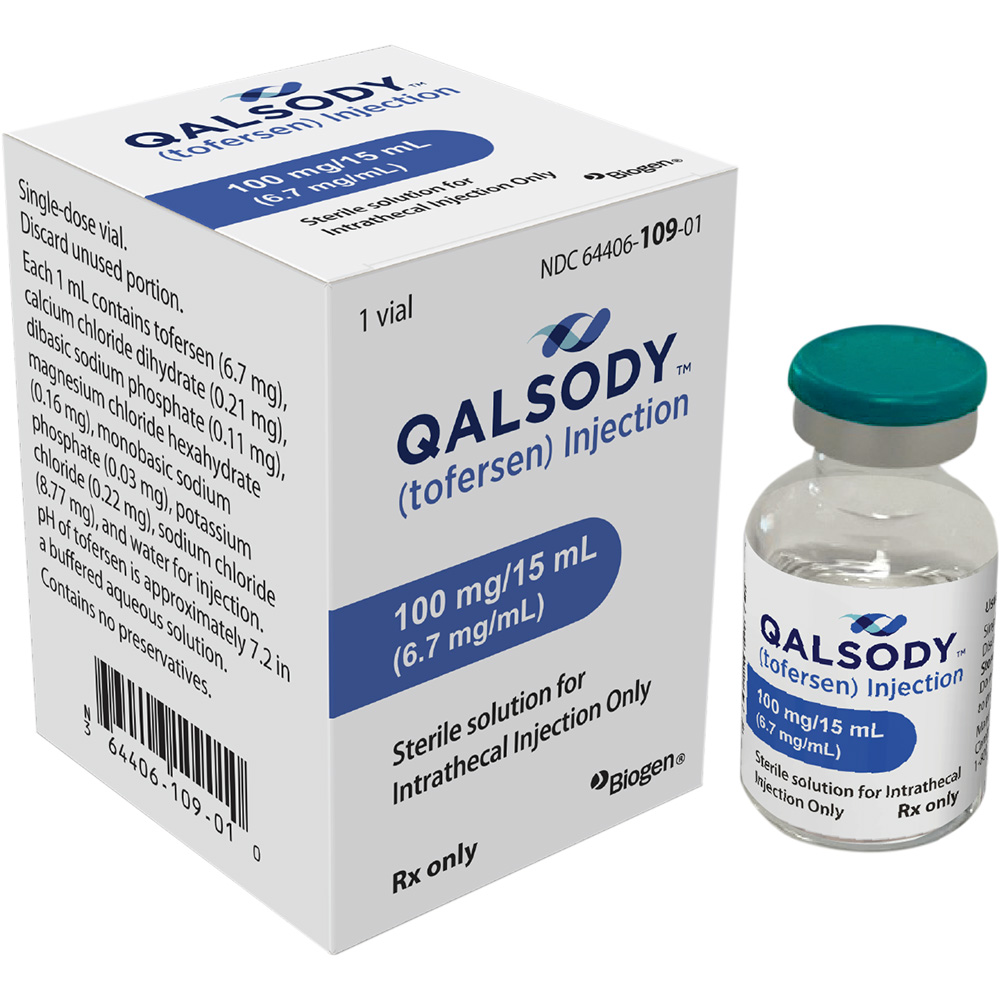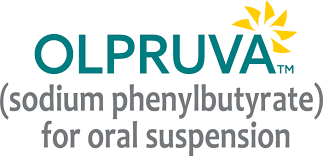Qalsody (tofersen) vs Olpruva (sodium phenylbutyrate)
Qalsody (tofersen) vs Olpruva (sodium phenylbutyrate)
Qalsody (tofersen) is an investigational antisense oligonucleotide designed specifically to reduce the production of superoxide dismutase 1 (SOD1) protein in patients with Amyotrophic Lateral Sclerosis (ALS) caused by mutations in the SOD1 gene. Olpruva (sodium phenylbutyrate) is a medication traditionally used for the treatment of urea cycle disorders, which is a completely different condition, but it has been investigated for off-label use in various other conditions due to its potential neuroprotective properties. When deciding between these two medications, it is crucial to consider the specific medical condition being treated; Qalsody is tailored for SOD1-related ALS, while Olpruva is not indicated for ALS and would be chosen based on its efficacy in treating the particular condition at hand.
Difference between Qalsody and Olpruva
| Metric | Qalsody (tofersen) | Olpruva (sodium phenylbutyrate) |
|---|---|---|
| Generic name | Tofersen | Sodium phenylbutyrate |
| Indications | Used for the treatment of amyotrophic lateral sclerosis (ALS) | Used as adjunctive therapy in the chronic management of urea cycle disorders |
| Mechanism of action | Antisense oligonucleotide that reduces the production of superoxide dismutase 1 (SOD1) protein | Converts to phenylacetate in vivo, which conjugates with glutamine to form phenylacetylglutamine, thereby reducing ammonia levels |
| Brand names | Qalsody | Olpruva, Buphenyl |
| Administrative route | Intrathecal injection | Oral (tablets and powder) |
| Side effects | Headache, back pain, fall, arthralgia, and procedural pain | Appetite loss, nausea, vomiting, electrolyte imbalances, and liver function abnormalities |
| Contraindications | Hypersensitivity to tofersen or its components | Hypersensitivity to sodium phenylbutyrate or its components, hyperammonemia in patients with urea cycle disorders not involving a deficiency of ornithine transcarbamylase (OTC) |
| Drug class | Antisense oligonucleotide | Ammonia detoxicant |
| Manufacturer | Biogen | Horizon Therapeutics |
Efficacy
Efficacy of Qalsody (Tofersen) in ALS
Qalsody, known by its generic name tofersen, is an investigational drug being studied for the treatment of Amyotrophic Lateral Sclerosis (ALS), specifically in patients with a confirmed SOD1 genetic mutation. ALS is a progressive neurodegenerative disease that affects nerve cells in the brain and spinal cord, leading to muscle weakness and atrophy. Tofersen is designed as an antisense oligonucleotide that targets the SOD1 mRNA, aiming to reduce the production of the SOD1 protein, which in mutated form is toxic to motor neurons. Clinical trials have been conducted to assess the efficacy of tofersen in slowing the progression of ALS in patients with SOD1 mutations. While the results have shown promise, with some patients experiencing slower functional decline, the full efficacy profile of tofersen is still under investigation, and it has not yet received approval from regulatory agencies as of the knowledge cutoff date.
Efficacy of Olpruva (Sodium Phenylbutyrate) in ALS
Olpruva, with the generic name sodium phenylbutyrate, is a drug that has been explored for off-label use in the treatment of ALS. While it is approved by the FDA for the treatment of urea cycle disorders, its potential efficacy in ALS is based on its properties as a chemical chaperone and histone deacetylase inhibitor, which may help mitigate cellular stress and improve protein folding. Studies investigating the use of sodium phenylbutyrate in ALS patients have suggested that it may have a neuroprotective effect and could potentially slow disease progression. However, the evidence supporting its efficacy in ALS is not as robust as for its approved indication, and more research is needed to establish its role in the management of ALS.
Combination Therapy with Qalsody and Olpruva
There has been interest in the potential synergistic effects of combining different therapeutic agents like Qalsody and Olpruva for the treatment of ALS. The rationale behind combination therapy is to target multiple pathways implicated in the disease process. However, as of the knowledge cutoff date, there is limited data on the efficacy and safety of such combination therapies in ALS patients. Clinical trials would be necessary to evaluate whether the combination of tofersen and sodium phenylbutyrate provides a significant benefit over monotherapy with either drug.
Conclusion
In conclusion, while Qalsody (tofersen) has shown potential in clinical trials for patients with SOD1-related ALS, its efficacy is still under investigation, and it is not yet approved for general use. Olpruva (sodium phenylbutyrate) has been studied off-label and may have neuroprotective properties that could benefit ALS patients, but more research is needed to confirm its efficacy in this specific population. The exploration of combination therapies represents an area of interest in the quest to find more effective treatments for ALS, but conclusive evidence is required to support such approaches. Patients and healthcare providers should continue to monitor the latest research findings and clinical trial results to make informed decisions about treatment options for ALS.
Regulatory Agency Approvals
Qalsody
-
European Medical Agency (EMA), European Union

-
Food and Drug Administration (FDA), USA

Olpruva
-
Food and Drug Administration (FDA), USA

Access Qalsody or Olpruva today
If Qalsody or Olpruva are not approved or available in your country (e.g. due to supply issues), you can access them via Everyone.org.
How it works

Make an enquiry
Choose the medicine you want to buy, answer a couple of questions, and upload your prescription to speed things up. We’ll get back to you within 24 hours.


Make an enquiry
Choose the medicine you want to buy, answer a couple of questions, and upload your prescription to speed things up. We’ll get back to you within 24 hours.


Breeze through the paperwork
We'll guide you through the required documents for importing unapproved medicine, ensuring you have all the necessary information.


Get a personalized quote
We’ll prepare a quote for you, including medicine costs and any shipping, administrative, or import fees that may apply.


Receive your medicine
Accept the quote and we’ll handle the rest - sourcing and safely delivering your medicine.

Some text on this page has been automatically generated. Speak to your physician before you start a new treatment or medication.
Let's talk
If you have any questions, call us or send us a message through WhatsApp or email:
Contact us




